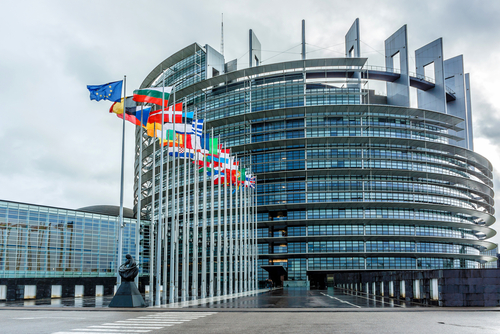Brussels (Brussels Morning) EU countries have reached an informal deal on a Health Technology Assessment (HTA) agreement that should increase patients’ access to medicines and medical devices.
“We have reached a decisive breakthrough on a new law which will benefit patients, manufacturers of health technologies and member states’ health systems”, Marta Temido, Portugal’s Health Minister, declared, speaking for the Council.
After several years of discussions dating from 2018, the Council and the European Parliament finally struck a political deal on 22 June to turn the HTA into a binding law.
HTA is a research-based tool to support decision-making in healthcare. It works by assessing the added value of new or existing health technologies – medicines, medical devices and diagnostic tools, surgical procedures, as well as measures for disease prevention, diagnosis or treatment – when compared to other health technologies.
According to the proposed legislation, member states will cooperate at EU level on joint clinical assessments and joint scientific consultations on health technologies. The new legislation calls for the creation of a “Member State Coordination Group”, with each country represented.
The collaborative undertaking will provide valuable scientific information to national health authorities when it comes to decisions about pricing and reimbursement for a health technology, the Council indicated.
“The regulation will dramatically reduce duplications of clinical assessments, ensure sustainable cooperation on HTA and provide us with a framework to better face health issues, such as rare diseases, personal medicine and orphan medicines”, MEP Tiemo Wolken (S&D) said.
EU health cooperation
“We will all stand to gain when innovative, safe and effective health technologies can reach the market more quickly. EU-level cooperation is the way forward to make this happen,” the MEP added.
Health technology includes medicinal products, medical devices — pacemakers, dialysis equipment and infusion pumps — or medical and surgical procedures, as well as measures for disease prevention, diagnosis or treatment used in healthcare.
Data transparency
Key aspects of the legislation include the introduction of clear safeguards on the uptake of joint clinical assessments to ensure greater transparency, according to the Parliament.
In practice, the clinical assessments are to be annexed within national assessments and each member state must report on their use in national HTAs.
Prior to this week’s informal agreement, the European Union of General Practitioners (UEMO) praised the Commission’s work, noting that doctors “need confidence in the HTA process” and that its methodology must be based on evidence-based medicine.
“GPs consider that for new technologies which are linked with information and communication technologies, confidentiality and the safety of data both during transmission and in storage (Cloud) is a very important topic to discuss in the interest of the patient”, a UEMO statement said.



